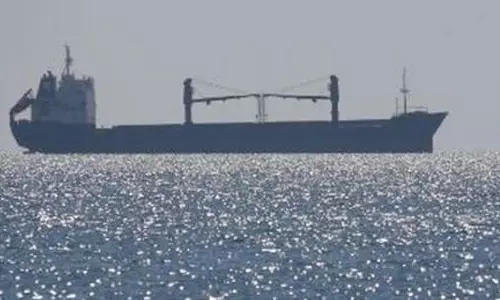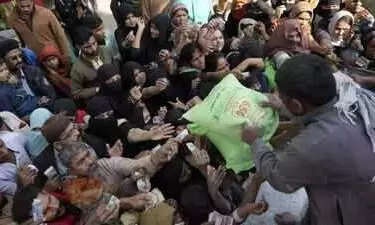
Unemployment fears increase in Pakistan over blocked imports
text_fieldsIslamabad: Business chiefs in Pakistan asked the government to lift the ban on imports. Right now, manufacturing materials are stuck at the key port of Karachi which can affect the industries and leave millions of people jobless.
The government has banned all imports except essential food and medicines due to low US-dollar reserves. Industries like steel, textiles, and pharmaceuticals are struggling due to the ban. This has already forced thousands of factories to close. Smaller factories have already exhausted stocks and larger plants are days from closing.
Wajid Bukhari, head of Pakistan's Large Scale Steel Producers Association, told AFP that the steel industry is faced with severe supply chain issues due to a shortage of scrap metal. In recent weeks, the price of steel bars has reached record prices. "We directly feed materials to the construction industry which is linked to some 45 downstream industries. This whole cycle is going to be jammed."
The Constructors Association of Pakistan said the situation has triggered fears that the construction industry will close down very soon and thousands of labourers will be unemployed. Tauqeer ul Haq, the head of the Pakistan Pharmaceutical Manufacturers Association, 40 medicine factories are close to shutting down due to a lack of key ingredients.
The textile industry has also more or less come to a "grinding halt" because there are no raw materials to operate mills. Around 30% of the mills have shut down operations completely and the rest are working at less than 40% capacity.
Shahid Sattar, secretary general of the All Pakistan Textile Association, said the textile industry should be prioritised because it is responsible for around 60% of Pakistan's exports and employs around 35 million people who process items like towels, underwear, and linen for major brands across the world. "We are the mainstay of the country's exports. If you don't have exports, how will you shore up your foreign exchange reserves? Then consequently, how will the economy recover?"
Inflation has hit Pakistan hard and fuel cost has also risen. Economists think the current ban is not a sustainable solution and will only worsen the situation along with fueling poverty.
The country is in talks with the IMF for a bailout.
























